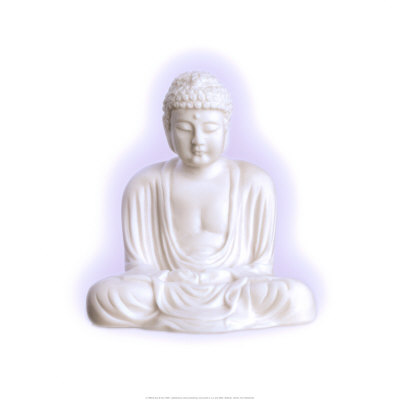

SOULFUL ATTITUDES
Mindfulness
Concentration
Non_Reaction
(Equinimity)
Wise-Attention
(Understanding)
Mindfulness vs
Concentration
Meditation vs
Contemplation
The Subject or
Object of Meditation
The Prerequisites
for Meditation
The Ultimate
Human Skill
Daily Practice
FAQs
An attitude is a mind-set; a mental position; a mental manner. It is built by way of developing mental qualities. A good attitude is built by developing wholesome mental qualities (virtues) and a bad attitude is built by developing unwholesome mental qualities. In order to build a soulful attitude, we need to develop five specific wholesome mental qualities of Non-violence, Non-lying (Truthfulness), Non-stealing (Non-exploitation), Non-indulgence, and Sexual-piety.
SOUL Meditation for developing the Attitude of
Non-Violence
Constantly abide in non-violence by:
a. Remaining mindful of all physical and verbal actions,
Remaining mindful of all physical and verbal actions,
b. Not reacting to fearful, hateful, or unwholesome feelings which
Not reacting to fearful, hateful, or unwholesome feelings which  generate violent tendencies,
generate violent tendencies,
c. Giving wise-attention to the impermanent and impersonal nature of such tendencies, and
Giving wise-attention to the impermanent and impersonal nature of such tendencies, and
d. Concentrating on divine qualities of loving-kindness and compassion.
Concentrating on divine qualities of loving-kindness and compassion.
Non-violence simply means not hurting or harming another living being in any manner. In general, it means not violating peace of others. It means becoming harmless and non-resistant. This is not just another philosophical view on non-violence but a pragmatic definition of non-violence.
Violence generally results from a strong sense of separation (ego) between us and the world. The practicing of non-violence slowly removes this sense of separation. Due to non-violence, we begin to loosen up from the grip of the ego and get inclined towards developing divine qualities of loving-kindness and compassion. As we continue to practice non-violence, these divine qualities no longer remain a mystery to us. They start making sense because we start experiencing them while practicing non-violence.
Other Daily Practices for developing Non-Violence
Besides the SOUL Meditation, we develop the attitude of non-violence by training as follows:
• Not killing another living being,
Not killing another living being,
• Not hurting or harming anyone in any way by speech or physical actions,
Not hurting or harming anyone in any way by speech or physical actions,
• Not intentionally disturbing others peace of mind,
Not intentionally disturbing others peace of mind,
• Not encroaching upon others space and giving space to all to live and evolve,
Not encroaching upon others space and giving space to all to live and evolve,
• Not forcing or pushing anyone for anything even with good intentions,
Not forcing or pushing anyone for anything even with good intentions,
• Accepting circumstances and situations as they are without resistance and without losing one’s ground. A bamboo tree neither resists strong winds nor gives up its ground. It simply bends when the wind is strong and stands right up when the wind is gone. It does not fight or resist the force of the wind. Therefore, ultimately, due to non-resistance it wins without fighting.
Accepting circumstances and situations as they are without resistance and without losing one’s ground. A bamboo tree neither resists strong winds nor gives up its ground. It simply bends when the wind is strong and stands right up when the wind is gone. It does not fight or resist the force of the wind. Therefore, ultimately, due to non-resistance it wins without fighting.
******************************************************
SOUL Meditation for developing the Attitude of
Truthfulness
Constantly abiding in truthfulness by:
a. Remaining mindful of every word in every speech,
Remaining mindful of every word in every speech,
b. Not-reacting to greedy, fearful, or unwholesome feelings which generate tendencies of lying,
Not-reacting to greedy, fearful, or unwholesome feelings which generate tendencies of lying,
c. Giving wise-attention to impermanent and impersonal nature of such tendencies, and
Giving wise-attention to impermanent and impersonal nature of such tendencies, and
d. Concentrating on upholding the truth.
Concentrating on upholding the truth.
Truthfulness simply means being grounded in reality and upholding the reality. It means not lying. It also means expressing the facts as they are.
People who generally lie are greedy, fearful, weak, lazy, and worrisome. They are not courageous or patient enough to face the truth. They are not audacious enough to face unfavorable situations. By lying, they find an easy way out. However, they harm themselves by lying because they reinforce (in their consciousness) the unwholesome mental elements such as greed, hatred, delusion, sloth, torpor, and restlessness. The more they lie the more they become greedy, fearful, weak, lazy, and worrisome, which, in turn, forces them to lie again. It is a vicious circle. One has to break out of this circle as soon as possible. Otherwise, lying soon becomes a disease of consciousness.
Nothing else strains and disturbs the consciousness as lying does. Nothing else increases the chances of developing illusion, delusion, and ignorance more than lying does. People who lie fool themselves because truth cannot be hidden. Therefore, lying must be abandoned completely by practicing truthfulness daily as follows:
Other Daily Practices for developing Truthfulness
• Doing what you say,
Doing what you say,
• Saying what you mean or intend,
Saying what you mean or intend,
• Neither exaggerating nor understating, means, expressing facts as they are,
Neither exaggerating nor understating, means, expressing facts as they are,
• Not speaking too much,
Not speaking too much,
• Speaking only the truth and standing for it at all times in all situations,
Speaking only the truth and standing for it at all times in all situations,
The consistent practicing of truthfulness makes us courageous, fearless, decisive, energetic, zestful, intuitive, and carefree. Truthfulness is magical in terms of boosting the energy for action. Truthfulness is the fastest way to achieve perfection in our actions. The easiest and surest way to feel good about ourselves is to speak the truth. The quickest way to get rid of our hatred, envy, avarice, worry, and doubt is to embrace and speak the truth wholeheartedly.
When we speak truthfully, we purify our communication. Also, because of truthfulness, we make many friends since we are seen as trustworthy.
The ardent practicing of truthfulness is especially useful for those who are lazy, greedy, possessive, weak, and delusive in temperament.
******************************************************
SOUL Meditation for developing the Attitude of
Non-Stealing
Constantly abiding in non-stealing by:
a. Remaining mindful of all “acquiring desires,”
Remaining mindful of all “acquiring desires,”
b. Not-reacting to greedy, conceitful, fearful, or unwholesome
Not-reacting to greedy, conceitful, fearful, or unwholesome 


 feelings which generate tendencies of stealing,
feelings which generate tendencies of stealing,
c. Giving wise-attention to impermanent and impersonal nature of
Giving wise-attention to impermanent and impersonal nature of 






 such tendencies, and
such tendencies, and
d. Concentrating on upholding qualities of honesty, integrity, fearlessness, and generosity.
Concentrating on upholding qualities of honesty, integrity, fearlessness, and generosity.
Whenever we have a desire to acquire something, we should become aware of that desire first. Then, we should contemplate on it to make sure there is no stealing, exploitation, or corruption involved. The best way to notice any trace of it in our action is to observe how we feel. If we practice Soul Meditation, we can notice a strong sense of shamelessness and fear whenever we are stealing, exploiting, or being corrupt. In the beginning, this feeling may be taken over by greed and conceit; however, there will always be a hangover or after-effect of shamelessness. We should become aware of this kind of feeling and use its unpleasant nature to train ourselves to not react and to let the unwholesome desire simply come and go each time it arises. At the same time, we should recollect, contemplate, and concentrate on wholesome qualities of honesty, integrity, fearlessness, and generosity.
The ardent practicing of non-stealing is especially useful in eradicating fear of poverty or the fear of loss. All the exploitation, corruption, embezzlement, and appropriation in the world would cease to exist if everyone were to perfect the attitude of non-stealing.
People steal or exploit because of fear, envy, greed, conceit, laziness, shamelessness, and boldness. Stealing, exploitation, corruption, etc is nothing but cowardice in disguise. Every act of stealing, exploitation, and corruption greatly strengthens the unwholesome mind. Therefore, such acts must be abandoned completely by developing the attitude of non-stealing as follows:
Other Daily Practices for developing Non-Stealing
• Without permission, not taking or using anything in any manner that belongs to others,
Without permission, not taking or using anything in any manner that belongs to others,
• Not exploiting others, especially those who are weak and needy,
Not exploiting others, especially those who are weak and needy,
• Not being corrupt by virtue of power or authority,
Not being corrupt by virtue of power or authority,
• Constantly abiding in the attitude of non-stealing by practicing
Constantly abiding in the attitude of non-stealing by practicing
******************************************************
SOUL Meditation for developing the Attitude of
Sexual-Piety
Constantly abiding in sexual-piety by:
a. Remaining mindful of all “lustful desires,”
Remaining mindful of all “lustful desires,”
b. Not-reacting blindly to such desires but skillfully attending to them,
Not-reacting blindly to such desires but skillfully attending to them,
c. Giving wise-attention to impermanent and impersonal nature of such desires, and
Giving wise-attention to impermanent and impersonal nature of such desires, and
d. Concentrating on upholding the qualities of faithfulness, devoutness, wholeness, oneness, and non-greed.
Concentrating on upholding the qualities of faithfulness, devoutness, wholeness, oneness, and non-greed.
We should recollect and contemplate on the spiritual virtue of sexual-piety prior to getting into any sexual relationship. Before we get into physical union with a partner, we should become aware of any lustful feelings beforehand. If we realize that we are being driven by lust, we should simply freeze and not proceed with physical union. We should step back, and, for a few moments, observe those lustful feelings as they arise and cease. As those feelings start losing strength, we should begin to recollect and contemplate on wholesome quality of sexual-piety. When and only when we begin to feel that there is faithfulness and a sense of devotion towards our partner, we should proceed further into physical union. Throughout the physical union, we should maintain awareness of feelings so we can experience moments of wholeness and oneness in our act of physical union.
Because it is very easy to get carried away by the formidable power of lust, maintaining awareness during sexual conduct is most critical. If we remain meditative, the overall experience and the after-effect of sexual union will always be blissful. With sustained practice of sexual-piety, the aspect of physical union becomes secondary. We not only start feeling that we are more and more loving towards our partner but also that we are loved by our partner.
We should never intentionally perform sexual activity as a means to train ourselves in sexual-piety, because, sexual piety is not a means to an end but simply an attitudinal discipline to remove lust. It should be used to minimize sexual indulgence, to eliminate sexual misconduct, and to eventually become free of sexuality. We should remain careful of our intellect which will find ways to justify sexual indulgence by devising various philosophies and ideologies around sexual-piety.
Developing an attitude of sexual-piety is absolutely necessary for removing unwholesome mental qualities of greed and lust. This attitude is indispensible for making all our sexual actions as a means to developing wholesome qualities of faithfulness, devoutness, wholeness, and oneness.
Other Daily Practices for developing Sexual-Piety:
• Refraining from all forms of sexual misconduct and shamelessness,
Refraining from all forms of sexual misconduct and shamelessness,
• Involving oneself in a sexual relationship with another person only based on faith and devotion for each other,
Involving oneself in a sexual relationship with another person only based on faith and devotion for each other,
• Performing sexual activities only as a means to experiencing wholeness, oneness, and not for satisfying lust,
Performing sexual activities only as a means to experiencing wholeness, oneness, and not for satisfying lust,
******************************************************
SOUL Meditation for developing the Attitude of
Non-Indulgence
Constantly abiding in the attitude of non-indulgence by:
a. Remaining mindful of “wants” and “greedy desires,”
Remaining mindful of “wants” and “greedy desires,”
b. Not-reacting to wants and greedy desires,
Not-reacting to wants and greedy desires,
c. Giving wise-attention to their impermanent and impersonal nature, and
Giving wise-attention to their impermanent and impersonal nature, and
d. Concentrating on non-greed, moderation, simplicity, conservation, and management.
Concentrating on non-greed, moderation, simplicity, conservation, and management.
Many of us are self-indulgent because we do not understand the difference between wanting and needing. We keep on reacting to our wants by acquiring more and more things. One want leads to another and, very soon, we get overwhelmed by all the material things that surround us. These things start ruling our life. Eventually, we become enslaved by them. Therefore, before deciding to buy more things, we need to first become aware of our thoughts so we can detect our greed. We need to simply remain aware of greedy thoughts as they arise and pass away and not react to them by jumping into the car to go out shopping. We need to give wise attention to not only the impermanent and impersonal nature of greedy thoughts, but also to the situation at hand, so that we can simplify the situation and thereby avoid increasing our liabilities. We need to make a sincere effort to try to find out if we can live without what is being acquired. In most cases, we can simplify the situation and eliminate the requirement. We can also use conservation and management techniques to minimize liabilities.
Practicing of this virtue is one of the best ways to free oneself for spiritual practice. A meditator very easily realizes this tremendous value, and so, almost instantly, establishes him in the attitude of non-indulgence.
Other Daily Practices for developing Non-Indulgence:
Non-indulgence is an attitudinal discipline for removing delusion, greed, conceit, sloth and torpor. The daily practicing of non-indulgence means:
• Avoiding all excesses, luxuries, and extravagance,
Avoiding all excesses, luxuries, and extravagance,
• Not collecting things for more and more comfort,
Not collecting things for more and more comfort,
• Not collecting things for more and more consumption,
Not collecting things for more and more consumption,
• Living in moderation and minimizing liabilities,
Living in moderation and minimizing liabilities,
• Clearly knowing one’s necessities and acquiring things only to fulfill those necessities,
Clearly knowing one’s necessities and acquiring things only to fulfill those necessities,
• Developing simplicity,
Developing simplicity,
• Living a conservative lifestyle.
Living a conservative lifestyle.




Copyright 2008 SOUL Research Institute
C

SOUL RESEARCH INSTITUTE
719-685-6294, 719-488-0548, 303-507-5169


Meditations
for
developing
SOULFUL
ATTITUDES
M1
M2
M3
M4
M5

